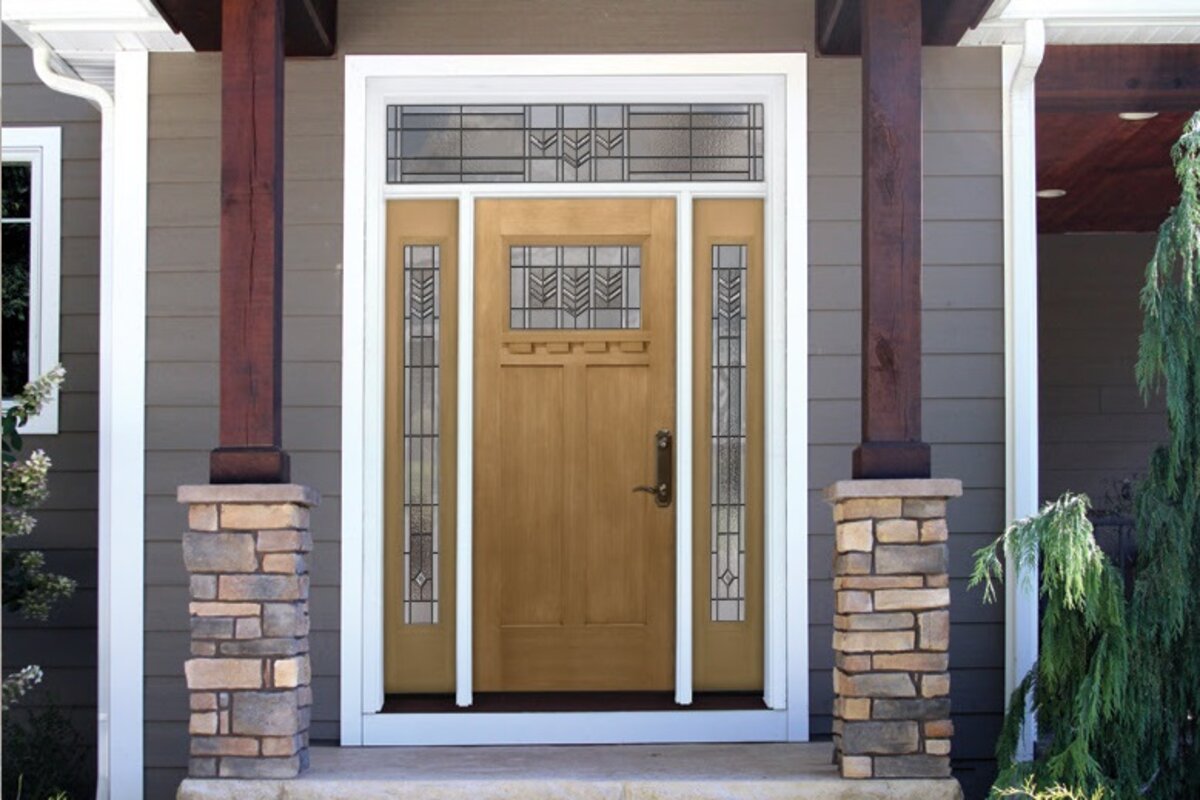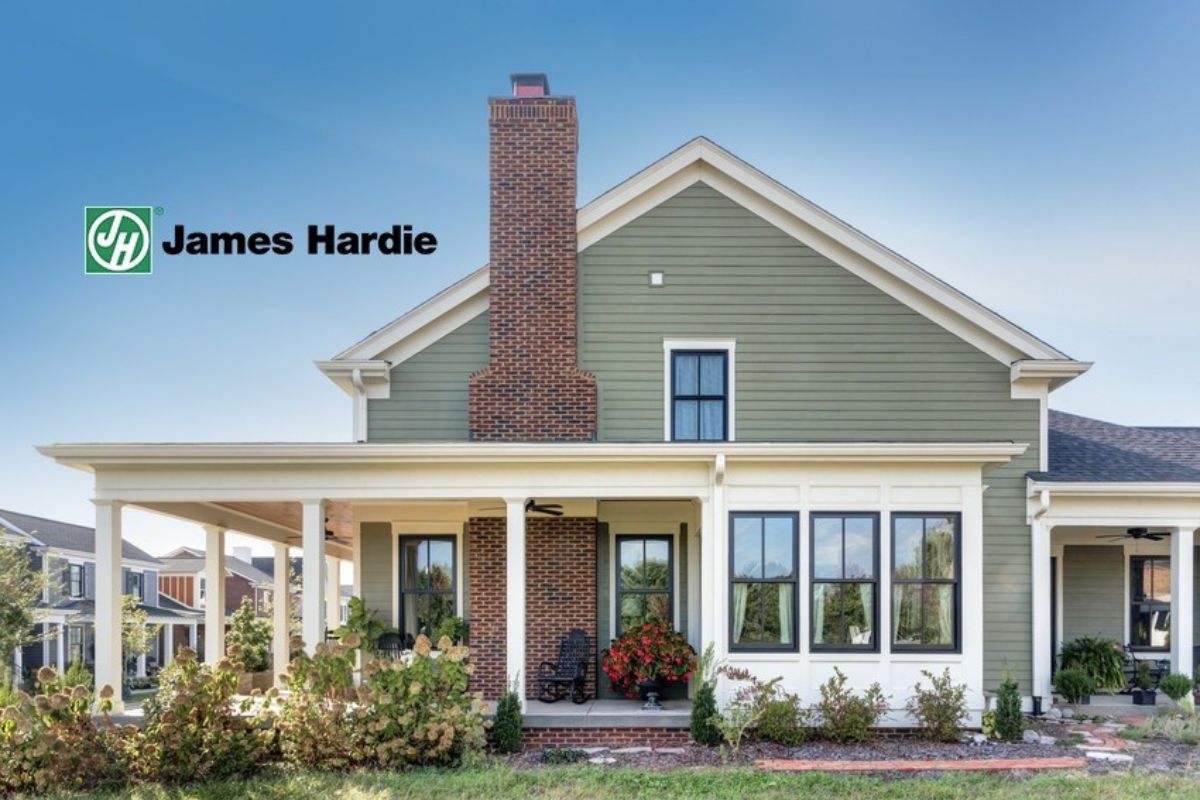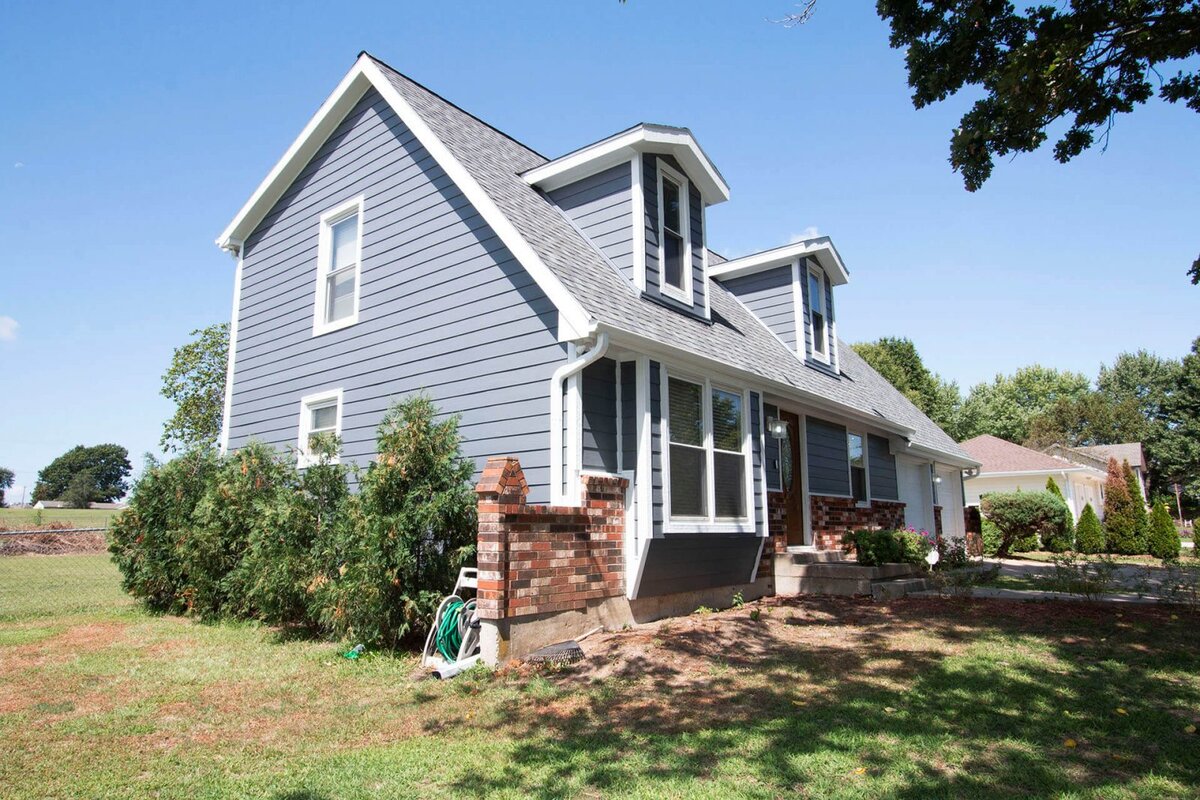The quality of a wood door depends on its material, construction, and finish. These factors determine its durability, appearance, and ability to withstand daily use and environmental changes. A well-made wooden door provides long-term performance with minimal maintenance.
As contractors, we guide homeowners in recognizing the key features of a well-made wood door. Understanding these details helps you select a door that enhances both the function and style of your home.
How to Identify the Quality of a Wood Door
Assessing the quality of a wood door involves a thorough examination of several critical factors:
Material Quality
The type and grade of wood used significantly influence a door’s longevity and performance. High-quality doors are typically crafted from hardwoods like oak, mahogany, or maple, known for their density and resistance to wear. Inspecting the wood for uniform grain patterns and the absence of knots or imperfections can provide insight into its quality.
Construction Method
The construction technique plays a pivotal role in a door’s stability. Solid wood doors offer traditional appeal but may be prone to warping in fluctuating climates. Alternatively, engineered core doors, which feature a composite core sandwiched between wood veneers, provide enhanced stability and are less susceptible to environmental changes.
Finish and Coating
A high-quality finish not only enhances the door’s appearance but also protects it from moisture and UV damage. Look for doors with a smooth, even finish, free from bubbles or streaks. The application of a quality sealant or paint can significantly extend the door’s lifespan.
Hardware Compatibility
Quality doors are designed to accommodate standard hardware seamlessly. Ensure that the door’s thickness and design are compatible with the locks, handles, and hinges you plan to install. Proper alignment and fitting of hardware components are crucial for the door’s functionality and security.
Warranty and Guarantees
Reputable manufacturers often provide warranties, reflecting their confidence in the product’s durability. A substantial warranty period can be an indicator of the door’s quality and the manufacturer’s commitment to customer satisfaction.
Common Issues in Wooden Doors
Understanding potential problems can aid in making an informed decision:
- Warping and Swelling: Solid wood doors can expand or contract with temperature and humidity changes, leading to warping or swelling. This can cause difficulties in opening or closing the door and may compromise its structural integrity.
- Rot and Decay: Exposure to moisture can lead to rot, especially in lower-quality wood or improperly sealed doors. Regular inspection for soft spots or discoloration can help identify early signs of decay.
- Surface Imperfections: Low-quality finishes may develop cracks, bubbles, or peeling over time, detracting from the door’s appearance and exposing the wood to environmental damage.
Why Choose All Star for Your Door Needs
At All Star, we specialize in providing top-tier replacement doors that combine aesthetic appeal with robust performance. Our selection includes engineered core doors designed to withstand environmental challenges, ensuring long-term stability and beauty. Our team of experts is dedicated to assisting you in choosing the perfect door that aligns with your home’s style and functional requirements. With a commitment to quality craftsmanship and customer satisfaction, All Star is your trusted partner in enhancing your home’s entryways.
In Summary
Identifying the quality of a wood door involves careful consideration of material selection, construction methods, finishing, and hardware compatibility. By focusing on these aspects, you can select a door that offers both durability and aesthetic appeal.
If you need assistance or have questions about choosing the right door for your home, contact us at All Star. Our team is here to provide expert guidance and ensure you make an informed decision that enhances your home’s beauty and functionality.






